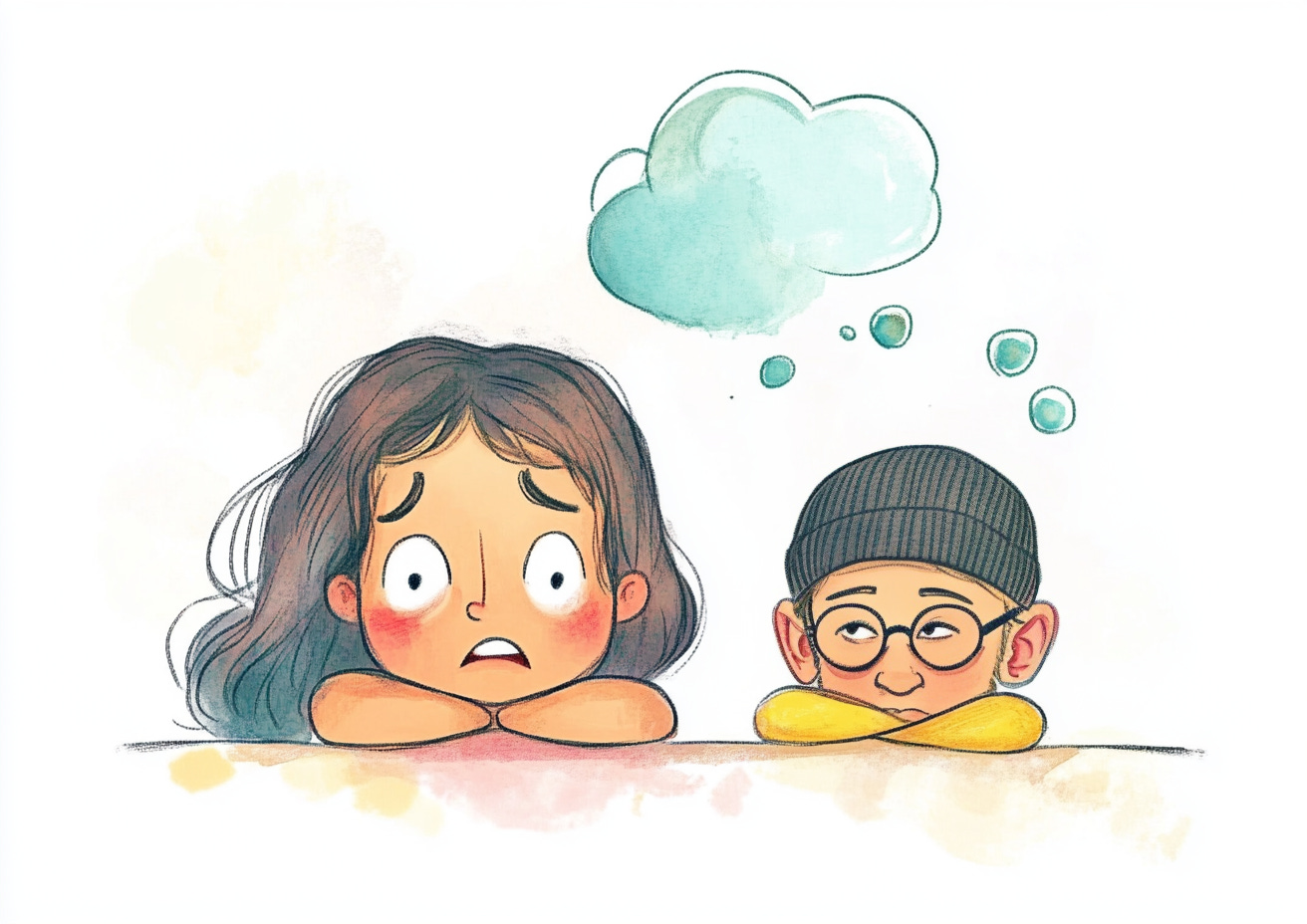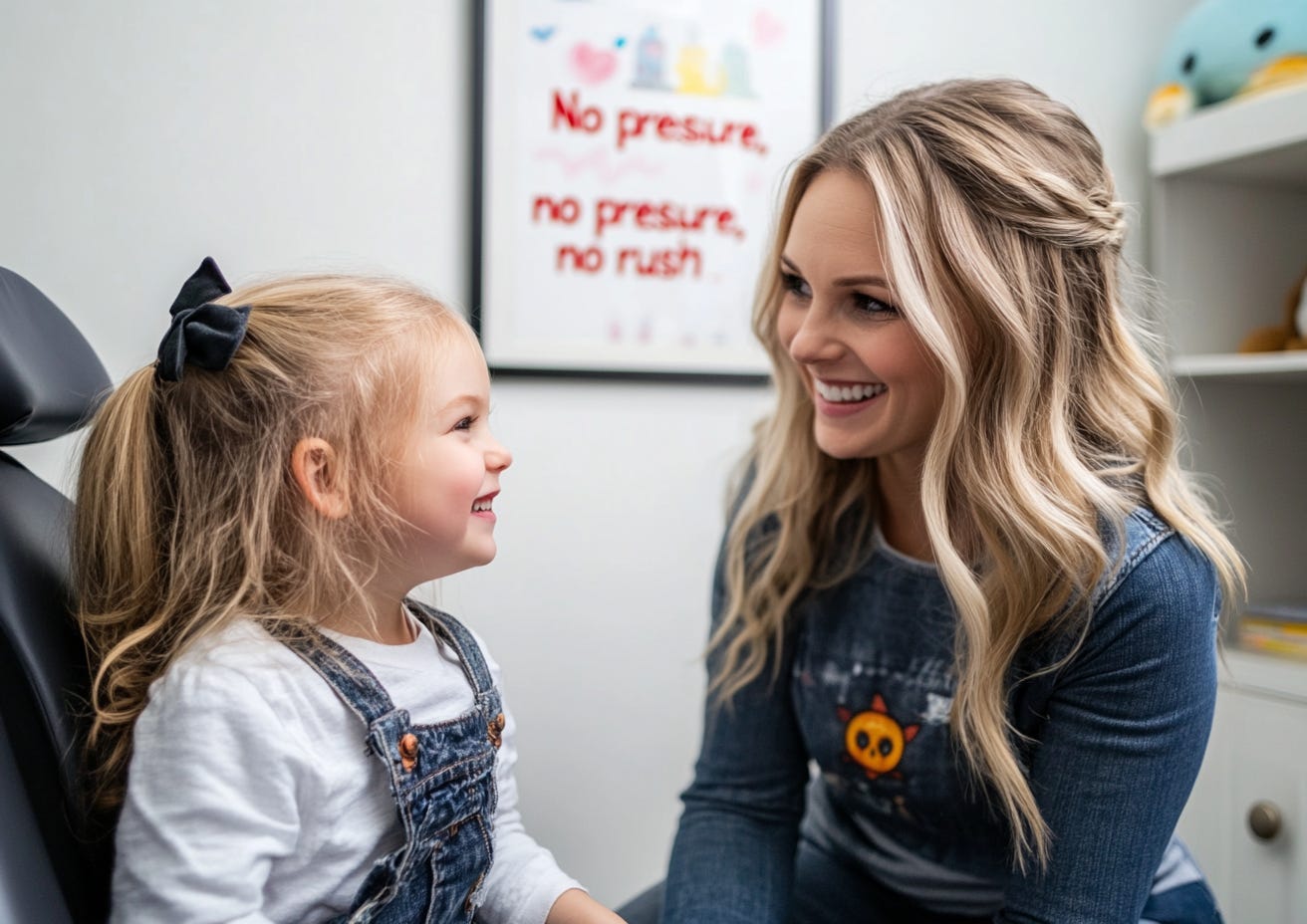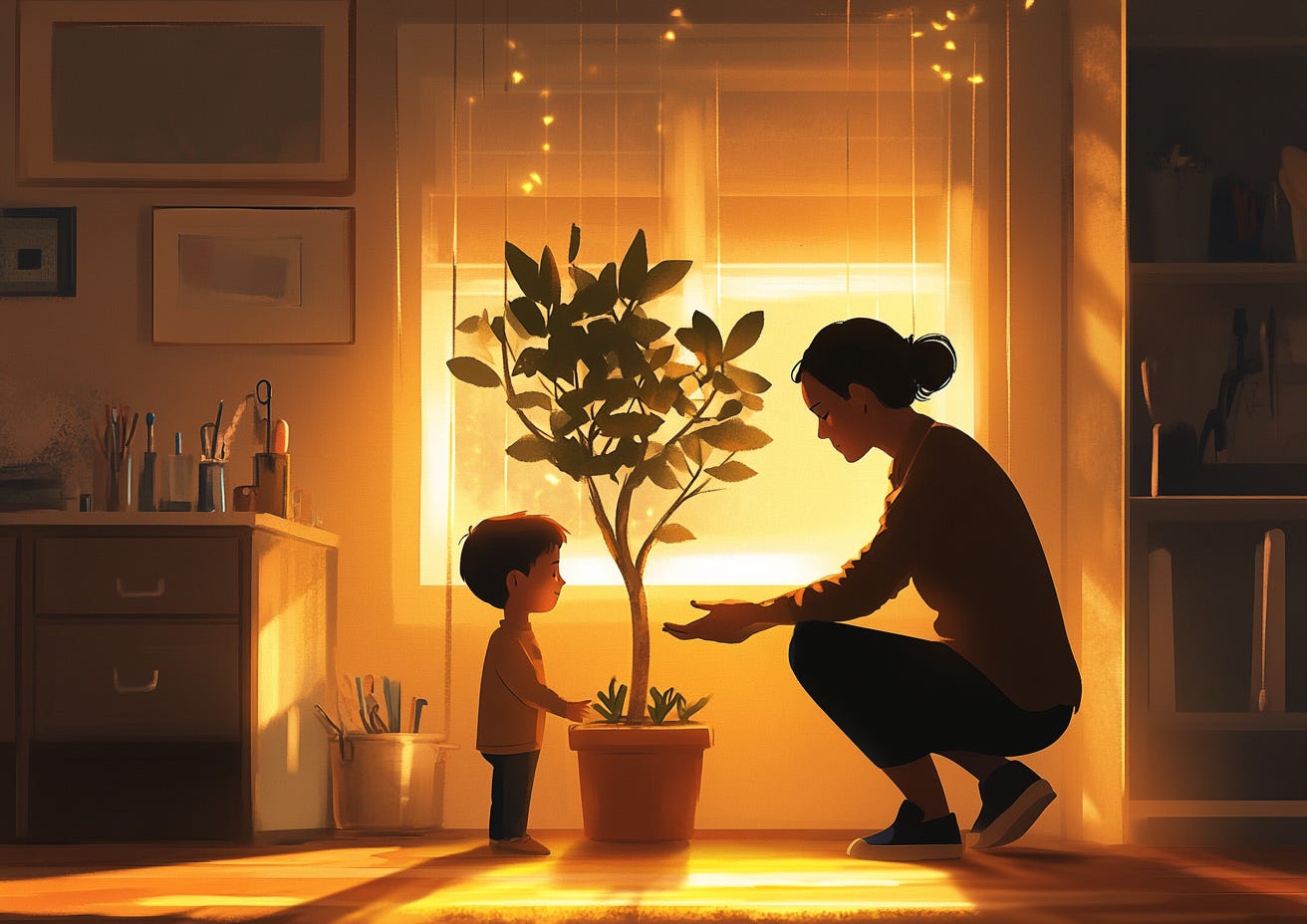🌟 Parenting Through a Neurodivergent Lens 🌟
Navigating Chaos, Embracing Growth: How Parenting Through a Neurospicy Lens Can Redefine Connection and Resilience
👶 Parenting is hard. 👩👧👦 Parenting as a 🌀 neurospicy adult is a whole different level. Imagine trying to coax your child 🦷 to get ready for a dentist appointment while they’re overwhelmed 😫 and on the verge of a meltdown 🌊, all while you’re barely keeping your own anxiety 🤯 in check. These moments, when everyone feels dysregulated, can leave you questioning ❓ everything about your parenting approach. Some days, it feels like you’re trying to guide your kids through a storm ⛈️ while fighting to keep your own ship afloat 🚢. The meltdowns 😭, the miscommunications 🔄, the moments when it feels like everyone in the house is walking on eggshells 🥚—those can drain the life out of even the most patient parent.
But here’s the truth 💡 that no one tells you: your struggles are not failures. They are proof of your effort, your resilience 💪, and your love ❤️. The chaos you feel? It’s part of a bigger picture 🖼️—a family figuring out how to work together 🤝, grow together 🌱, and thrive together 🏡 in ways that are uniquely yours.
If you’ve ever felt like you’re the only one who’s constantly on the edge of dysregulation 🌋, or if you’ve ever wondered why traditional parenting advice feels like it just doesn’t fit 🤷, you’re not alone. This is your story, too. It’s about understanding yourself 🧠 and your children 👶, finding the tools 🛠️ to navigate life with a neurospicy lens 🔍, and realizing that the path forward is built on connection 🤗, compassion 💞, and a lot of trial and error 🔁.
Parenting isn’t just about survival 🛡️—it’s about building a life where everyone in your family can feel seen 👁️, supported 🙌, and safe 🛑. So let’s dive in 🌊.
💡 Lightbulb Moment: The "Inception" Realization
To get me to do something, you need to inception my brain 🧠—you need to make me think it’s my idea 💭. This trait was particularly challenging in parenting because it made me hyper-aware of how demands 🛑 were presented, both to me and to my kids 👦👧. I realized that placing direct demands often led to pushback 🛡️, and it forced me to rethink 🤔 the way I approached not just my children’s needs, but my own reactions as well. But if you ever give me an ultimatum ⚠️, I will do the exact opposite 🔄, and I always thought it was just out of spite. Turns out, it’s a lot deeper than that.
Before I learned about PDA (Pathological Demand Avoidance) 🌀, this was how I described myself to others. I thought I was just a stubborn person 💪 who refused to be told what to do. Internally, this led to feelings of frustration 😣 and isolation 🚪. Why did I react this way when others seemed to go along with the flow? It wasn’t until I learned about PDA and started to understand myself and my kids that everything began to click ✅.
That realization was like a lightning bolt ⚡. I wasn’t just "stubborn" or "difficult." I had a pervasive demand for autonomy —and so did my children 👶. What I had thought was unique to me was actually something shared by countless neurospicy individuals 🌍. For the first time, I didn’t feel alone, and more importantly, I began to see a path forward 🛤️ for myself and my family. The sense of relief and validation was immeasurable 💖—finally, a framework that explained what felt like an impossible dynamic.
🔄 The Shift in Perspective: Learning About PDA
All the kudos 🏆 for this shift go to my amazing spouse 💑, who never gave up trying to understand what was happening. There were times we didn’t know how we were going to get through the chaos 🌀, but she kept searching 🔍 until we found the frameworks that worked for us. If you have someone like that in your life 💝, make sure you let them know how much you appreciate them 🙏. They are the difference between living your best life 🌈 and struggling in darkness 🌑.
One of the first tools 🛠️ we found that helped us start this journey was The Explosive Child 📘 by Ross W. Greene, PhD. (Note: this is an Amazon affiliate link that helps support our work here.) This book helped us shift from viewing meltdowns 😭 and outbursts as defiance to understanding them as signs of unmet needs 💔 and overwhelmed systems. It taught us to approach situations with empathy 🤝 and collaboration 🤲 instead of control, setting the foundation for a completely new parenting perspective 🌟. It gave us permission to stop seeing our child as “challenging” 🛠️ and start seeing them as needing support 💞 to navigate overwhelming emotions 🌊.
From there, we discovered Casey Ehrlich, PhD, a neurospicy mom 🌟 who’s been through similar struggles. She introduced us to the concept of PDA 🌀, which isn’t yet widely recognized in the U.S. 🇺🇸 but is gaining traction. Her work led us to resources 📚 like the PDA Society, based in the UK 🇬🇧, which helped us understand the demand avoidance behaviors in ourselves and our children 🧠👶. These resources became lifelines 🛟, helping us reframe our parenting and understand that the traditional “one-size-fits-all” advice 🧩 wasn’t designed for families like ours 🏡.
🛠️ Practical Applications: How It Works in Everyday Life
The realization that we needed to include our children in decision-making 🎲 changed everything about how we parent. We started giving ample warning ⏰ for appointments or changes in routine 🔄. Instead of dictating what they had to do, we said things like, “No pressure, no rush 🕰️,” and let them know they had a say in the process 🗣️.
You might think that if you give a child the ability to say “I can’t” ✋, they’ll never do what they need to. For example, when my child was feeling overwhelmed 😖 about a dentist appointment 🦷, I told them it was okay to say, “I can’t,” if it felt too hard. Surprisingly 🤯, after processing this and feeling validated ✅, they decided to go anyway—on their terms. This taught me that giving them autonomy often leads to them stepping up 💪 when they feel safe 🛡️ and supported.
We also learned to validate their feelings consistently 🌈. When something feels scary 😨 or overwhelming 😰, we remind them that it’s okay to have those feelings and that we’re there to help 🤗. One of our favorite mantras is, “You are not your thoughts 🧠.” (Or, as we jokingly reframe it, “You are not your farts 💨.” It’s silly 😂, but it sticks.) Dysregulated moments don’t define who they are. They are loved ❤️ and accepted, no matter what.
We’ve also applied these lessons to how we manage household routines 🏠. For example, instead of issuing commands like, “It’s time to clean your room 🧹,” we’ll say, “Would you like to tackle your room now or after dinner? 🍽️” This small shift makes an enormous difference ✨. It’s not about being permissive 🚦; it’s about giving them a sense of control 🔑 over their environment.
💪 The Hard Work of Changing Parenting Styles
I won’t lie—this kind of parenting is hard 🏋️. When you’re raised with a command-and-control style ⛓️, stepping back and letting your kids make their own choices 🛤️ feels counterintuitive. It’s a process that requires constant mindfulness 🌿 and a willingness to adapt 🔄.
Creating a safe environment 🌟 where our kids can express themselves without fear of judgment 🚫 has been a game-changer 🎮. They need to know they can tell us the things they’d hide from others—the things that make them mask 🎭. If you’re reading this hoping for a magical way 🪄 to make your kids or loved ones stop resisting ✋ and comply, you won’t find that here 🚫. This approach is about reframing your perspective 🌀, not controlling others.
We’ve come to embrace the fact that progress isn’t linear ➡️⬅️. There are still days when we feel like we’re falling short 🕳️, but those days are fewer now 📉. And when we do stumble, we focus on repair 🛠️—letting our kids know it’s okay to mess up, as long as we try to do better next time 💖.
When we let go of the need to control every outcome 🚪 and instead focus on connection and safety 🛡️, everything changed 🌈. Our household used to feel like a battlefield ⚔️ of dysregulation and hurt feelings 💔. Now, it’s a place where we can weather challenges together as a team 👫.
🌟 A Hopeful Resolution: Modeling Vulnerability and Growth
There was a time recently when I got dysregulated 🌪️. It wasn’t anything major, but afterward, I apologized 🙏 to my kids. My son looked at me and said, “I noticed you got a little dysregulated there, Dad 👨👦. It’s okay.” That moment floored me 💥. It showed me that the effort we’ve put into modeling vulnerability and repair hasn’t just helped our relationship ❤️—it’s given my kids tools 🧰 for their own emotional growth 🌱.
There will be days when you feel like you’ve failed 💔. Days when you lose your cool 😡, and you worry that you’ve broken something in your relationship with your child 😢. But you can always come back from that ♻️. It takes work 🏋️, but it’s worth it 💎.
When your child feels safe enough to acknowledge your mistakes with love and compassion 💞, you know you’re on the right track 🛤️. It’s moments like these that remind me why this journey is so important—because it’s not just about raising our kids, it’s about growing with them 🌳.
🚀 Closing Thoughts
If you’re struggling with parenting through a neurodivergent lens 🌀, know this: you’re not alone 🤝. The path may be challenging ⛰️, but it’s also filled with opportunities for connection 🌈, growth 🌱, and transformation ✨. You’ve got this 💪. Parenting isn’t about perfection 🛑; it’s about showing up 🧍, learning 📘, and trying again 🔁.
Start with resources like The Explosive Child 📖, Dr. Casey Ehrlich 💻, and the PDA Society 🌐. Take it one step at a time 👣, and remember that progress, not perfection, is the goal 🎯.
We’d love to hear your stories 📬. What challenges have you faced? What strategies have worked for you? Let’s keep this conversation going 💬 and support each other on this journey 🚶. You can email us at askmcphee@gmail.com 📩 to share your thoughts and experiences ✍️.







